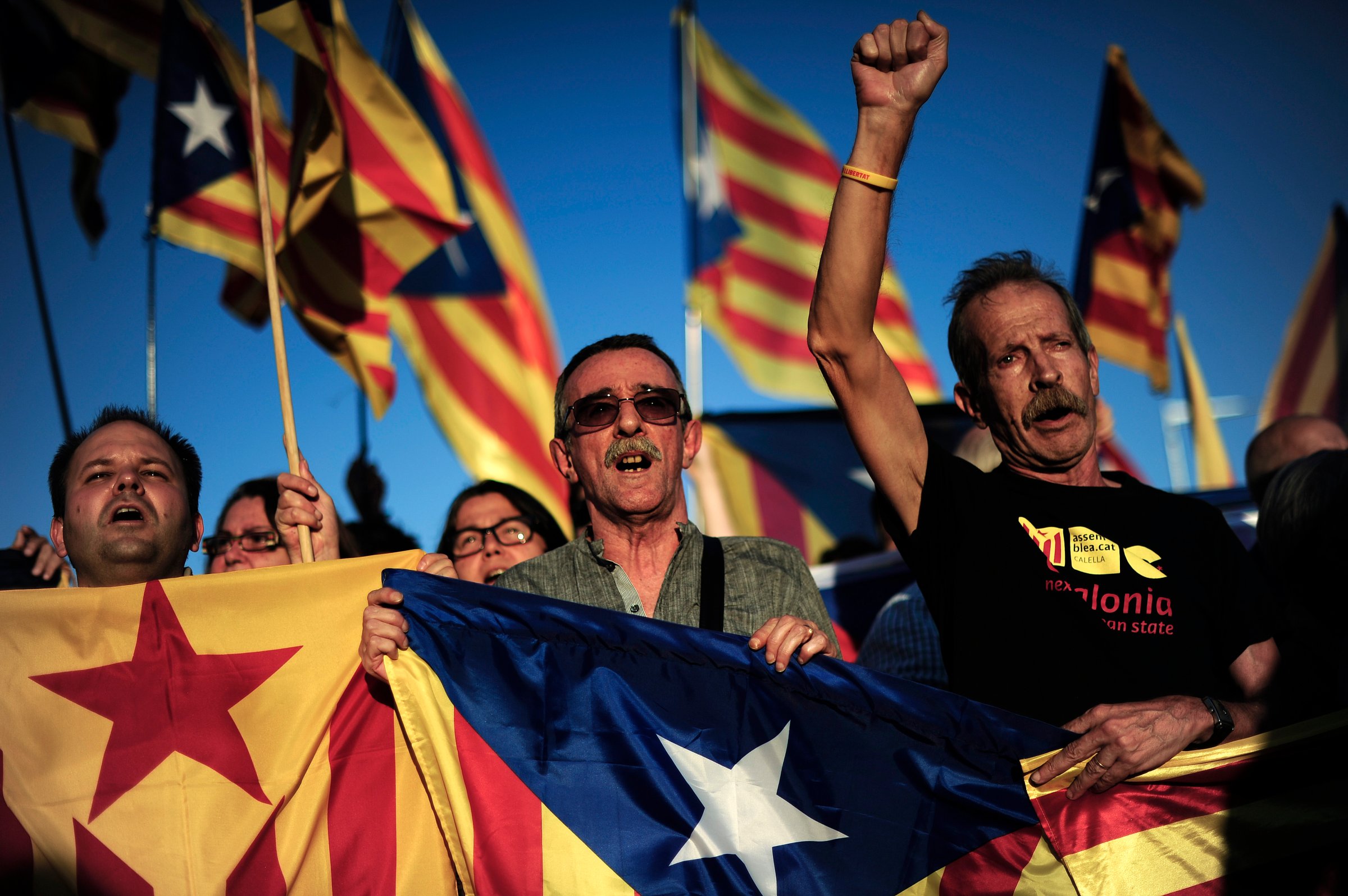
In a Tuesday ruling, Spanish judges found Catalonia’s planned independence referendum to be unconstitutional, but secessionists in the Spanish autonomous region (called a “community” in Spain) have vowed to proceed regardless.
“This will have no effect on the process,” said the Catalan government’s spokesman Francesc Homs on local television.
Although stifled under the yoke of the Franco dictatorship, Catalonia has long felt cultural and linguistic disctinction from the rest of Spain. In recent years, it developed into a powerhouse of the nation’s economy. However, amid the country’s financial crisis, Madrid has been urging national unity.
“No one can unilaterally deprive the entire Spanish people of the right to decide on their future,” Spain’s conservative Prime Minister Mariano Rajoy told the parliament, which is due to debate the referendum on April 8.
Catalan leaders have compared their situation with Scotland’s, which will hold a referendum on independence in September, but the Spanish Constitutional Court found that the country’s charter does not allow such a poll.
Last September 11, Catalonia’s national day, hundreds of thousands of Catalans formed a vast human chain across the region to call for independence. The referendum, if it goes ahead, is planned for Nov. 9.
[AFP]
More Must-Reads from TIME
- Why Trump’s Message Worked on Latino Men
- What Trump’s Win Could Mean for Housing
- The 100 Must-Read Books of 2024
- Sleep Doctors Share the 1 Tip That’s Changed Their Lives
- Column: Let’s Bring Back Romance
- What It’s Like to Have Long COVID As a Kid
- FX’s Say Nothing Is the Must-Watch Political Thriller of 2024
- Merle Bombardieri Is Helping People Make the Baby Decision
Contact us at letters@time.com